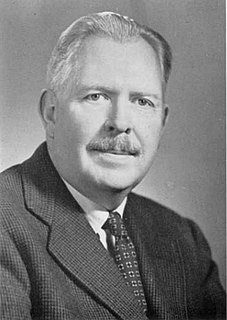A Quote by Mario Bunge
I have nothing to fear from serious social studies of science, and I hope that my philosophy will help progressive science policies while showing that the most modern views of science are ignorant and regressive, even if they are accompanied by a leftist-sounding rhetoric.
Related Quotes
It is time to create new social science departments that reflect the breadth and complexity of the problems we face as well as the novelty of 21st-century science. These would include departments of biosocial science, network science, neuroeconomics, behavioral genetics and computational social science.
My position is a naturalistic one; I see philosophy not as an a priori propaedeutic or groundwork for science, but as continuous with science. I see philosophy and science as in the same boat--a boat which, to revert to Neurath's figure as I so often do, we can rebuild only at sea while staying afloat in it. There is no external vantage point, no first philosophy.
The tremendous and still accelerating development of science and technology has not been accompanied by an equal development in social, economic and political patterns …it is safe to predict that… such social inventions as modern-type capitalism, facism and communism will be regarded as primitive experiments directed towards the adjustment of modern society to modern methods
I believe it to be of particular importance that the scientist have an articulate and adequate social philosophy, even more important than the average man should have a philosophy. For there are certain aspects of the relation between science and society that the scientist can appreciate better than anyone else, and if he does not insist on this significance no one else will, with the result that the relation of science to society will become warped, to the detriment of everybody.









































